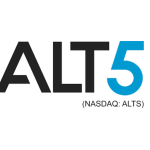Blockchain
5 Blockchain Projects The World’s Biggest Banks Are Behind

Introduction
The banking industry has been undergoing a technological transformation, and at the forefront of this shift is blockchain technology. With its potential to enhance transparency, security, and operational efficiency, blockchain has become a cornerstone for innovation in financial services. This article explores five blockchain projects that the world’s largest banks are spearheading, demonstrating the immense possibilities of this technology in redefining traditional banking.
JPMorgan’s Onyx: Revolutionizing Cross-Border Payments
JPMorgan Chase has been a leader in integrating blockchain into banking operations. Its Onyx platform is a prime example of blockchain technology’s potential. Launched in 2020, Onyx uses blockchain to facilitate faster, more secure cross-border payments.
Through its Liink network, Onyx connects over 400 financial institutions, enabling them to exchange information and settle payments seamlessly. The platform eliminates intermediaries, reducing transaction times from days to mere seconds. By leveraging blockchain’s immutable ledger, Onyx ensures transparency, reduces errors, and enhances security. JPMorgan’s continued investment in Onyx underscores its commitment to staying ahead in the evolving financial landscape.
Hsbc’s Digital Vault: Enhancing Asset Tokenization
HSBC’s Digital Vault represents a significant leap toward asset tokenization and digital securities management. Built on blockchain technology, the Digital Vault provides a secure platform for tracking ownership and lifecycle events of private market securities.
Traditionally, managing private market investments was a cumbersome process involving multiple intermediaries. The Digital Vault streamlines this by creating a transparent, tamper-proof record of all transactions. Investors benefit from real-time access to their holdings, while HSBC reduces costs and operational inefficiencies.
This project has the potential to unlock significant liquidity in private markets, attracting a new wave of investors and reshaping the way private assets are managed.
Deutsche Bank’s Trade Finance Blockchain Initiative
Deutsche Bank, in collaboration with other major financial institutions, has ventured into blockchain to address inefficiencies in trade finance. Its Trade Finance Blockchain Initiative utilizes distributed ledger technology (DLT) to digitize the traditionally paper-heavy processes of global trade.
By creating a shared, immutable ledger, the initiative ensures transparency and accountability among all stakeholders, including importers, exporters, and regulators. The use of blockchain reduces the time required for document verification and approval from weeks to hours.
This initiative has been particularly effective in combating fraud, as every transaction is recorded and immutable. For Deutsche Bank, blockchain represents not just a technological upgrade but a transformative solution for global trade challenges.
Bank Of America’s Blockchain-Based Loan System
Bank of America has been exploring blockchain to streamline its loan processing systems. The bank’s blockchain-based loan system simplifies and accelerates loan applications by digitizing the entire process.
Traditionally, loan approvals involve extensive documentation and verification. Blockchain allows for a transparent and tamper-proof record of borrower information, enabling faster credit assessments and approvals. Smart contracts further automate the process by executing predefined conditions without manual intervention.
This approach not only reduces operational costs but also enhances the customer experience by significantly shortening approval times. Bank of America’s initiative is a testament to blockchain’s potential in transforming traditional banking processes.
Citigroup’s Blockchain Bond Issuance Platform
Citigroup has embraced blockchain to revolutionize bond issuance. Its blockchain-based platform streamlines the end-to-end process of issuing, selling, and managing bonds.
By leveraging blockchain, Citigroup eliminates the need for intermediaries, reducing costs and improving transparency. The platform’s smart contracts automate coupon payments and redemptions, ensuring timely and accurate execution. Investors benefit from increased trust and reduced settlement times.
This project highlights how blockchain can bring innovation to fixed-income markets, making them more accessible and efficient. Citigroup’s efforts demonstrate a bold move toward modernizing traditional financial instruments.
The Impact Of Blockchain In Banking
The integration of blockchain technology into banking has brought about several key benefits:
Transparency and Security: Blockchain’s immutable ledger ensures that all transactions are secure and tamper-proof, enhancing trust among stakeholders.
Operational Efficiency: By automating processes and eliminating intermediaries, blockchain significantly reduces transaction times and operational costs.
Financial Inclusion: Blockchain opens up new opportunities for individuals and businesses in underserved markets by providing access to secure and cost-effective financial services.
Fraud Prevention: The technology’s transparency and traceability make it easier to detect and prevent fraudulent activities.
Challenges And The Road Ahead
Despite its benefits, blockchain adoption in banking is not without challenges. Regulatory uncertainties, integration with legacy systems, and scalability issues remain significant hurdles. However, banks are increasingly collaborating with technology firms and regulators to address these challenges.
The success of these projects demonstrates the industry’s resilience and adaptability. As blockchain technology matures, it is expected to become an integral part of banking operations, driving innovation and growth.
Conclusion
The world’s leading banks are leveraging blockchain technology to transform financial services. From cross-border payments to trade finance and asset tokenization, these initiatives highlight blockchain’s potential to revolutionize traditional banking. As these projects evolve, they promise to create a more efficient, transparent, and inclusive financial ecosystem.
The future of banking is undoubtedly digital, and blockchain is at the heart of this transformation. With continued innovation and collaboration, the banking industry is poised to harness the full potential of this groundbreaking technology.











